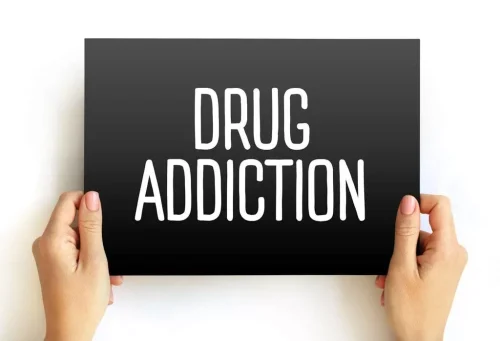The study found T-ACE to be the most sensitive of the three tools in identifying current alcohol consumption, risky drinking, or lifetime alcohol diagnoses (Chang et al. 1998). Although T-ACE had the lowest specificity of the three tests, it is argued that false positives are of less concern than false negatives among pregnant women (Chang et al. 1998). Screening often is the initial contact between a woman and the treatment system, and the client forms her first impression of treatment during screening and intake. How screening is conducted can be as important as the actual information gathered, as it sets the tone of treatment and begins the relationship with the client.
If you scored positive in these tests, it’s highly encouraged that you immediately seek help from a qualified clinician. There is no quick answer, as everyone’s tolerance and specific reaction to alcohol are different. But for most people, an occasional glass of wine or a can of beer every once in a while is not a cause for concern. According to the National Institute on Alcohol Abuse and Alcoholism, a moderate intake for men would be no more than four drinks a day and no more than 14 drinks a week.
Both of these how to cure a hangover fast tool types are designed for initial detection, not for diagnosis. Following a positive CAGE test score of 2 or higher, further evaluation should be done to determine a diagnosis and treatment plan. Women may practice behaviors that put them at high risk for contracting sexually transmitted diseases (STDs) and other infectious diseases (Greenfield 1996). Testing for HIV/AIDS, hepatitis, and tuberculosis is important; however, it is as essential to have adequate support services to help women process test results in early recovery.
- The focus of the assessment may vary depending on the program and the specific issues of an individual client.
- Be aware that weight gain during recovery can be a major concern and a relapse risk factor for women.
- The phrasing of the CAGE drug and alcohol assessment can be changed slightly to include the use of drugs, this is known as the CAGE-AID assessment.
- Alcohol is never worth risking close relationships with your family and friends, and therapy and support groups can help you overcome the urge to drink while restoring your relationships.
- Neither this site nor anyone who answers the call receives a commission or fee dependent upon which treatment provider a visitor may ultimately choose.
It is used in a variety of settings, including medical practices and emergency rooms. It’s often a first-line questionnaire given to patients before other questions about substance use are asked. Do you have any questions about the CAGE alcohol assessment tool or the acronym CAGE in substance abuse? By taking the time with the client to prepare and explain how the screening is done and the potential need to pace the material, the woman has more control over the situation.
Drugs & Supplements
The CAGE questionnaire is used as an initial assessment before any other questions about alcohol use are asked. It can also be used as a self-assessment tool, but it should not be used to self-diagnose or rule out alcoholism. CAGE tests can only be scored if the patient completes the whole questionnaire. Two or more “yes” answers are generally taken to indicate that a person may have an alcohol use disorder.
The assessment section includes general principles for assessing women, the scope and structure of assessment interviews, and selected instruments. Finally, other considerations that apply to screening and assessment are discussed, including alcohol shakes: symptoms, causes, treatments, and remedies women’s strengths, coping styles, and spirituality. Health care professionals are not exempt from substance abuse problems and should
be screened according to the same protocols applied to the larger primary care
population.
What Is the CAGE Assessment?
One letter in the CAGE alcohol assessment acronym is pulled from words in each of the four questions. While ideally you want the client to control the level of disclosure, it is important as a counselor to mediate the level of disclosure. At times, clients with PTSD just want to gain relief; they disclose too much, too soon without having established trust, an adequate support system, or effective coping strategies. An example of an instrument that can detect symptoms of anxiety is the 21-item Beck Anxiety Inventory (BAI; Beck 1993; Hewitt and Norton 1993). Among a group of psychiatric patients with a variety of diagnoses, women’s BAI scores indicated higher levels of anxiety than men’s BAI scores. However, the nature of the anxiety reported appears similar for women and men (Hewitt and Norton 1993).
What Is Substance Abuse?
It has been validated only for screening pregnant women with risky drinking (Russell et al. 1994). Counselors should be aware that although a client speaks English relatively well, she still may have trouble understanding assessment tools in English. It is not adequate to simply translate items from English into another language. Some words, idioms, and examples do not translate directly into other languages but need to be adapted. Ideally, interviews should be conducted in a woman’s preferred language by trained staff who speak the language or by professional translators from the woman’s culture.
Many physicians may tend to ignore this diagnosis until it becomes so severe it is the presenting symptom. While there are many other alcoholism assessment procedures that are much more specific, CAGE is perfect for situations when a quick assessment of alcohol abuse is needed. Because talking about drinking behavior can be uncomfortable or stigmatized, people’s responses may be subject to social desirability bias. The honesty and accuracy of responses may improve if the person trusts the person doing the interview or interpreting the score. Responses also may be more honest when the form is completed online, on a computer, or in other anonymous formats.
CAGE Assessment and Diagnosing Substance Abuse
Most substance abuse criteria include the assessment of a person’s functioning in both individual and social spheres (the first two questions). Furthermore, tolerance and abstinence are perhaps the most important symptoms of addiction, which is assessed by the fourth CAGE question. The CAGE is sometimes used as a general substance abuse assessment, but it has to be noted that it is primarily developed for the detection of alcoholism.
The CAGE substance abuse screening tool is a questionnaire used by clinicians to identify alcohol use disorder. The CAGE test is not designed to diagnose alcoholism, but rather to identify the potential for alcohol abuse that may warrant further assessment and potential treatment. The focus of the assessment may vary depending on the program and the specific issues of an individual client. PSH has been found to have satisfactory test-retest reliability (i.e., the extent to which the scores are the same on two administrations of the instrument with the same people) and concurrent validity with the ASI (Comfort et al. 1999). This screening approach has been used to identify women who are at risk for substance abuse in prenatal health settings.
The Assessment Interview
The Texas Christian University Drug Screen II (TCUDS II) is a 15-item, self-administered substance abuse screening tool that requires 5–10 minutes to complete. It is based in part on Diagnostic Interview Schedule and refers to Diagnostic and Statistical Manual of Mental Disorders, 4th Edition, Text Revision (DSM-IV-TR; American Psychiatric Association [APA] 2000a) criteria for substance abuse and dependence. It has good reliability among female populations (Knight 2002; Knight et al. 2002). Substance abuse screening and assessment tools, in general, are not as sensitive in identifying women as having substance abuse problems.
A fundamental problem is that most patients with alcoholism do not look like “typical alcoholics” as depicted in the public image, unless they are in an advanced stage and are difficult to treat. A clinician must inquire renton, wa transitional housing, sober housing about symptoms and sometimes must press the patient who seems evasive about answering questions about substance abuse. Denial is a very common mental mechanism among individuals abusing alcohol or other drugs.
To expedite screening and increase the likelihood of honest answers, clinicians
should ask questions sequentially, beginning with the legal drug alcohol (Institute of Medicine, 1990). Typically
people with substance use disorders drink, so asking, “Please tell me about your
drinking” serves as an effective filter. The assessment examines a client’s life in far more detail so that accurate diagnosis, appropriate treatment placement, problem lists, and treatment goals can be made. Usually, a clinical assessment delves into a client’s current experiences and her physical, psychological, and sociocultural history to determine specific treatment needs. Using qualified and trained clinicians, a comprehensive assessment enables the treatment provider to determine with the client the most appropriate treatment placement and treatment plan (CSAT 2000c).
The closer to 100 percent of
those with alcohol and other drug problems that a screen identifies as positive
for that condition, the more sensitive the test. The counselor may need to replace standard screening and assessment approaches with an in-depth discussion with the client and perhaps family members to understand substance use from the client’s personal and cultural points of view. The migration experience needs to be assessed; some immigrants may have experienced trauma in their countries of origin and will need a sensitive trauma assessment. The treatment field depends on tools or questionnaires that, for the most part, have been found valid and reliable with two populations of women—Caucasians and African Americans. Although translations of some instruments for non–English-speaking populations have been made, the validity of the adapted instruments is not always documented. There was significant heterogeneity between studies for all CAGE thresholds and for all measures of test performance.
Contrary to popular practice, the amount one should drink is not necessarily just somewhat less than what it takes to get drunk. Even if you’re not yet drunk, alcohol can still be doing damage to your body. Researchers have found that people with higher tolerance to alcohol are more at risk from the long-term effects of drinking compared to “lightweights” simply because their bodies accumulate more alcohol for longer periods. When exploring alcohol use patterns, the CAGE Assessment can be a useful, objective way to determine whether casual use has shifted into riskier drinking patterns. The CAGE addiction assessment was published in 1984 and was developed by Dr. John A. Ewing.







